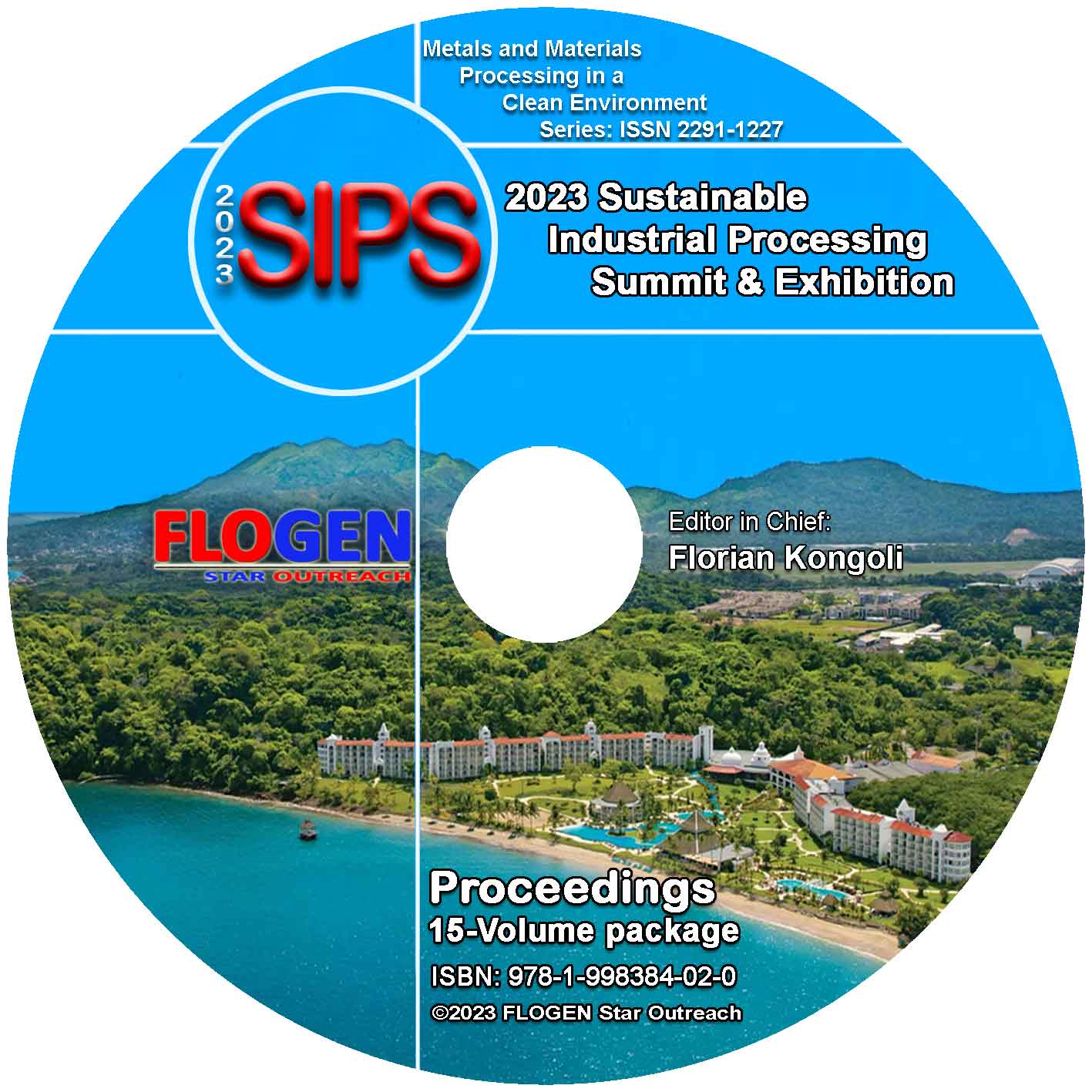2023-Sustainable Industrial Processing Summit
SIPS2023 Volume 15. Intl. Symp on Advanced Materials and Modelling of Complex Materials
| Editors: | F. Kongoli, F. Marquis, N. Chikhradze, T. Prikhna, O. Adiguzel, E. Aifantis, R. Das, P. Trovalusci |
| Publisher: | Flogen Star OUTREACH |
| Publication date: | 21 December 2023 |
| Pages: | 288 pages |
| ISBN: | 978-1-998384-00-6 (CD) |
| ISSN: | 2291-1227 (Metals and Materials Processing in a Clean Environment Series) |

CD shopping page
OBTAINING BIOFUEL FROM WASTE FRYING OILS AND COMMERCIAL LINSEED OIL
Moacyr de Rezende1; Fernanda A Sampaio da Silva2; Ingrid R de Lima1; Bonifácio de Oliveira Fialho1; Marcos de Campos3;1FEDERAL FLUMINENSE UNIVERSITY, Volta Redonda, Brazil; 2FEDERAL FLUMINENSE UNIVERSITY, Volta Redonda , Brazil; 3UFF - FEDERAL FLUMINENSE U., Volta Redonda, Brazil;
Type of Paper: Regular
Id Paper: 270
Topic: 43
Abstract:
There is a great worldwide effort in research for the creation of technologies that allow the generation of energy through the use of new renewable biofuels that replace the traditional fuels derived from petroleum. We propose the synthesis of renewable biodiesel that was synthesized via chemical reaction of homogeneous alkaline transesterification and with ethyl route, from mixtures with different organic sources of fatty acids, proportions of composition between residual vegetable oil from frying and commercial linseed vegetable oils. The reaction was carried out in basic medium. The catalyst used (potassium hydroxide) was finely dispersed in infinite dilution condition, in order to ensure an effective nanotechnological condition for optimizing the degree of conversion of the mixture. The objective of these study is to understand the influence on the quality of the biodiesel produced, based on the most up-to-date specifications informed by the ANP. The evaluated parameters were measurement of specific mass; reaction yield of esters by mass; acid index and kinematic viscosity measurement at 40 0C. In addition, the results showed that regardless of the sample composition, the results of the kinematic viscosity measurement at 40 0C are in accordance with the current national biodiesel specifications. In conclusion, the results showed that the rheological classification for all samples consisted of the Newtonian fluid model, or the Power Law model when the power index is equal to unity (n=1).